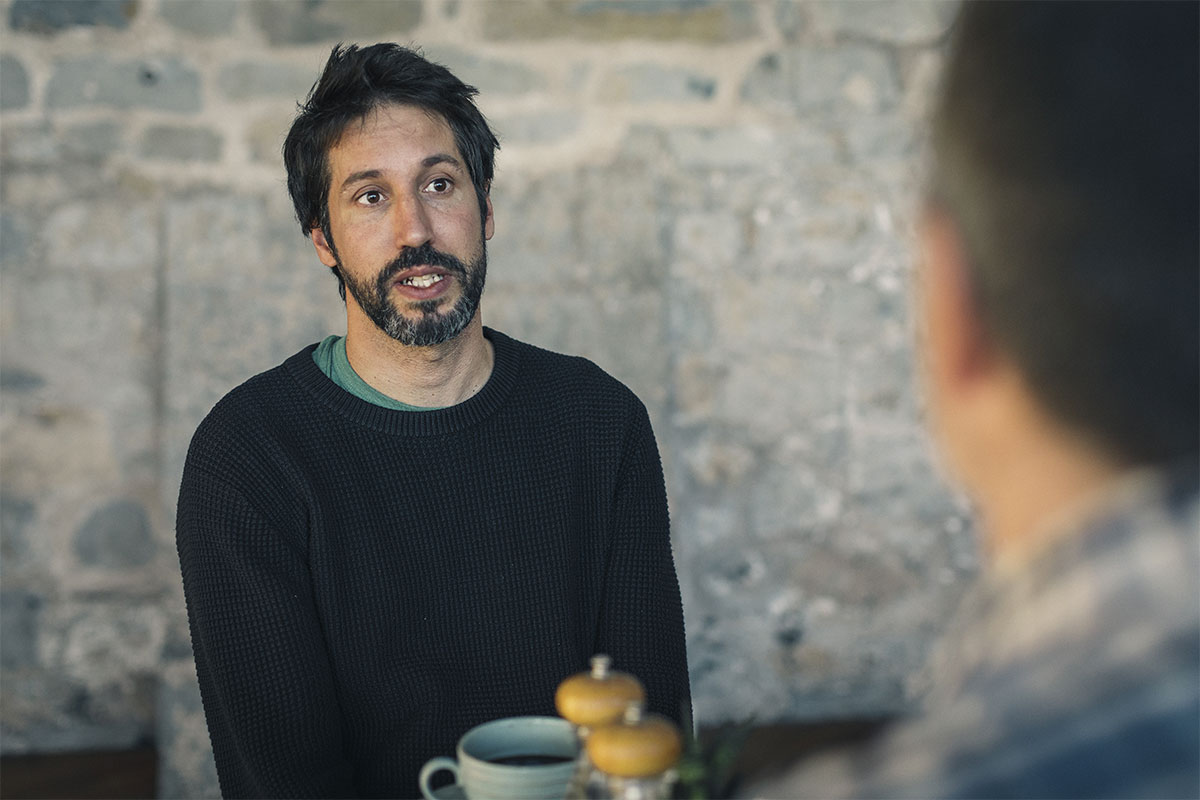Ymgyrchoedd
Ymgyrch Os Yw Hi’n Oce
Nod yr ymgyrch ‘Os yw hi’n oce…’ yw mynd i’r afael â’r effaith negyddol y mae cywilydd yn ei chael ar y rhai sy’n byw gyda salwch meddwl yng Nghymru a ledled y DU.
Darganfyddwch fwy yma
Gyda chalon drom rydym yn cyhoeddi y bydd Amser i Newid Cymru, ein rhaglen gwrth-stigma genedlaethol yn dod i ben ar y 31 o Fawrth 2025. Mae hyn oherwydd nad ydym wedi sicrhau cyllid parhaol y tu hwnt i’r cyfnod presennol hwn. Ers ei sefydlu yn 2012, mae’r rhaglen hon wedi bod yn allweddol wrth godi ymwybyddiaeth, cefnogi unigolion, ac eiriol dros newid yn y ffordd y mae iechyd meddwl yn cael ei ganfod a’i drafod ar draws systemau a chymdeithas.
Dros y blynyddoedd, rydym wedi cael y fraint o weithio gyda gwirfoddolwyr, partneriaid a chyflogwyr anhygoel sydd wedi rhannu eu straeon, cyfrannu eu hamser, a hyrwyddo’r achos. Gyda’n gilydd, rydym wedi cyflawni cymaint o ymgyrchoedd ymwybyddiaeth y cyhoedd i gyrraedd cynulleidfaoedd newydd a herio stigma yn rhai o’r mannau mwyaf heriol.
Er bod y rhaglen waith hon yn dod i ben, mae’r ymrwymiad i fynd i’r afael â stigma iechyd meddwl yn parhau ar draws y ddau o’n sefydliadau cynnal Adferiad a Mind Cymru. Rydym yn annog pawb sydd wedi bod yn rhan o’r daith hon i barhau â’r sgwrs, cefnogi ei gilydd, ac eiriol dros Gymru ddi-stigma, i bawb.
Estynnwn ein diolch o galon i bawb sydd wedi cefnogi Amser i Newid Cymru dros y degawd diwethaf a mwy – ein Hyrwyddwyr, Cyflogwyr Addunedol a phartneriaid, a’r cymunedau rydym wedi’u gwasanaethu. Hefyd, diolch o galon i’n cyllidwyr yn Llywodraeth Cymru am gefnogi a hyrwyddo gwaith gwrth-stigma yng Nghymru.
Am ragor o fanylion neu gefnogaeth cysylltwch â'r tîm ar info@timetochangewales.org.uk neu ewch i dudalenau gwestiynau cyffredin Hyrwyddwyr a Chyflogwyr.
Cadwch mewn cysylltiad â sianeli cyfrnygau cymdeithasol ein partneriaid:
Adferiad - Facebook, X (formerly Twitter), Instagram, LinkedIn
Mind Cymru - Facebook, Instagram, LinkedIn
Nod yr ymgyrch ‘Os yw hi’n oce…’ yw mynd i’r afael â’r effaith negyddol y mae cywilydd yn ei chael ar y rhai sy’n byw gyda salwch meddwl yng Nghymru a ledled y DU.
Darganfyddwch fwy ymaCroeso i Bodlediad Lle i Siarad – lle mae pob llais yn bwysig.
Gwrandewch ar y penodau ymaMae'r ymdrechion diflino a welwyd mewn gweithleoedd, cymunedau a gwasanaethau wedi cyfrannu'n sylweddol at newid cadarnhaol mewn cymdeithas yng Nghymru.
Darganfyddwch fwyMewn gwirionedd, gall problemau iechyd meddwl fod yn fwy cyffredin na'r disgwyl. Caiff un o bob pedwar ohonom ei effeithio gan salwch meddwl yn ystod unrhyw flwyddyn.
Darganfyddwch fwyOs ydych yn profi problemau iechyd meddwl neu os oes angen cymorth brys arnoch, mae llawer o lefydd y gallwch fynd am help.
Cael helpGall dynion ffeindio siarad am iechyd meddwl yn arbennig o annodd, ond mae siarad yn holl bwysig. Mae'n amser i ni ofyn y cwestiwn o ran iechyd meddwl dynion.
Darganfyddwch fwy